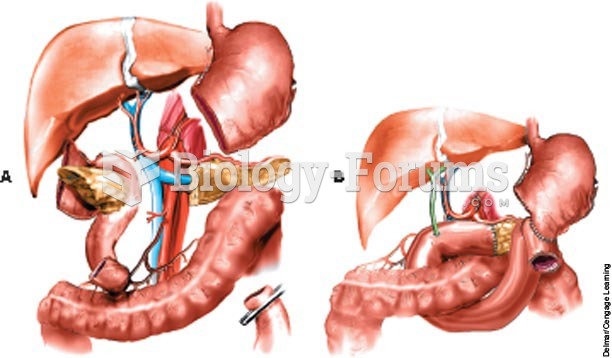|
|
|
For high blood pressure (hypertension), a new class of drug, called a vasopeptidase blocker (inhibitor), has been developed. It decreases blood pressure by simultaneously dilating the peripheral arteries and increasing the body's loss of salt.
In Eastern Europe and Russia, interferon is administered intranasally in varied doses for the common cold and influenza. It is claimed that this treatment can lower the risk of infection by as much as 60–70%.
Always store hazardous household chemicals in their original containers out of reach of children. These include bleach, paint, strippers and products containing turpentine, garden chemicals, oven cleaners, fondue fuels, nail polish, and nail polish remover.
Bacteria have been found alive in a lake buried one half mile under ice in Antarctica.
Medications that are definitely not safe to take when breastfeeding include radioactive drugs, antimetabolites, some cancer (chemotherapy) agents, bromocriptine, ergotamine, methotrexate, and cyclosporine.
 Nurses may collaborate with social workers, physicians, and other members of the health care team to
Nurses may collaborate with social workers, physicians, and other members of the health care team to
 Arthroscopic surgery involves the surgery of a joint with the use of a flexible arthroscope and othe
Arthroscopic surgery involves the surgery of a joint with the use of a flexible arthroscope and othe





